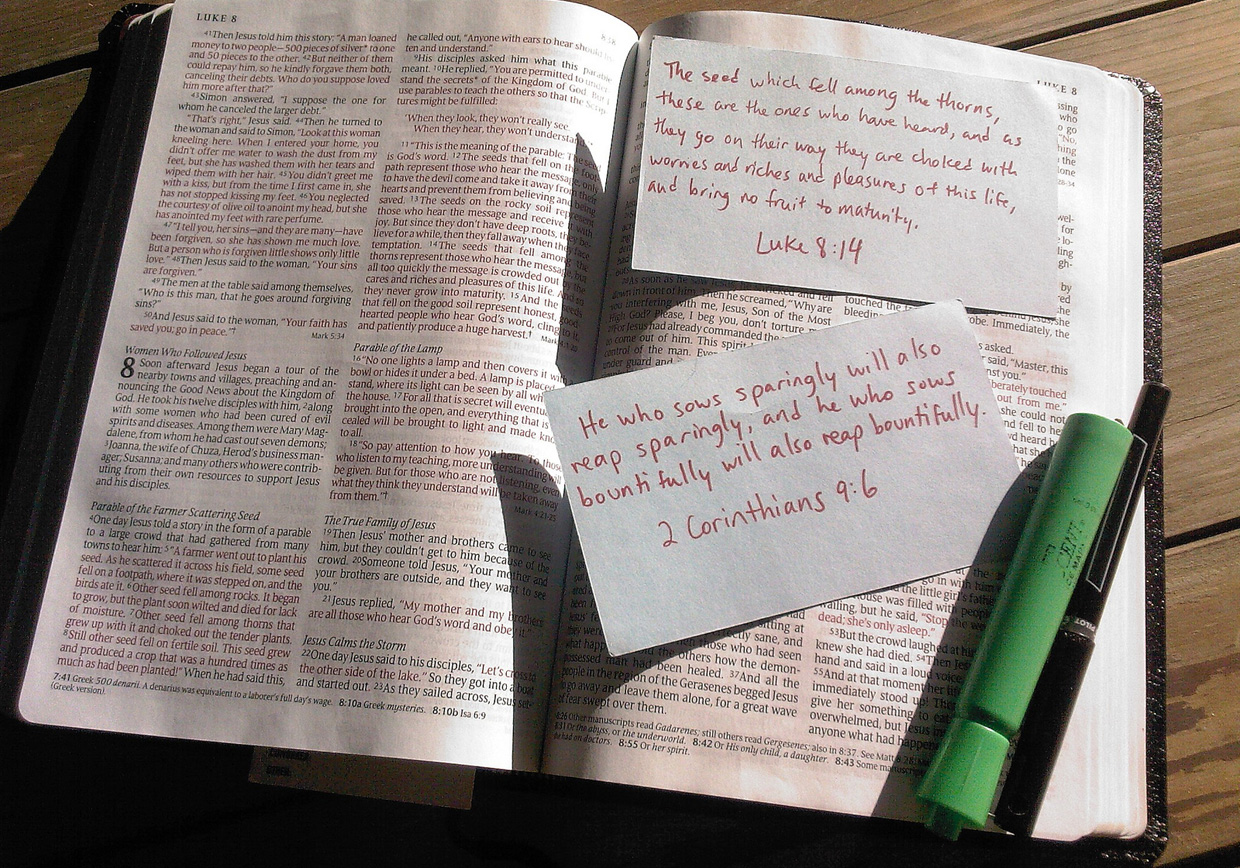I'm one of those people who hates confrontation and would do just about anything to avoid conflict. So it may come as a surprise that I'm also an apologist for the Christian faith, an enterprise that involves disagreements of all kinds.
1 Peter 3:14 tell us, "Always be prepared to give an answer to everyone who asks you to give the reason for the hope that you have." An atheist quoted that verse to me right before asking why I believed in God. I quickly realized for the first time that my Christian faith was largely grounded in experience. My reasons for believing were valid, but not convincing for someone looking for arguments based in logic and reason.
Even after I did my homework—learning the arguments for the existence of God and the reliability of the Bible—I quickly discovered I also had to know the right way to articulate them, particularly in the face of the insults and mockery some atheists like to substitute for intelligent and reasonable dialogue. I didn't just study the "what" of apologetics; I studied the "how," turning to guides such as Greg Koukl's Tactics.
Judging by the dearth of women in apologetics, I'm not the only one who doesn't like disagreements and strives for peace in all things. Sheryl Sandburg's Lean In brought up once again women's hesitancy to be assertive, even in situations when we have a cause to fight for. Women are actually more underrepresented in philosophy—a field overtaken by aggressive debates, according to Freakonomics– than in math and science.
The problem with these patterns does not lie with some innate inability for women to engage in debate, but the perceptions and expectations we hold. In No More Christian Nice Girl, Jennifer Degler and Paul Coughlin note that "boys are commended for their assertiveness while girls are praised for being quiet and calm. By the sixth and seventh grades, a girl's primary concern is being popular and well-liked"… and nobody likes an arguer, do they?
It doesn't help that many of us end up in churches that misinterpret Bible verses such as 1 Timothy 2:12 and 1 Corinthians 14:34-35 to mean that a good Christian woman is a silent Christian woman. As a result, we smile. We nod. We keep our mouths closed even when we have something worthwhile to say.
Plus, in postmodern America, we get told truth is relative and we don't have the right to impose our views. But as Christians—men and women—we must continue to see Christ's command to go and share the Gospel as pertinent today as it was when he delivered it (Matt. 28:16-20).
Of course, apologetics doesn't have to involve the harsh fights and heated debates we may initially imagine. Remember, Jesus himself was an apologist. Many see Christ as—in Degler and Couglin's words—"the nicest man to skip across ancient soil," but he also had backbone. The Pharisees constantly confronted him, and he never retreated. His responded out of necessity to assert the truth, not a desire to stir up conflict.
As Jesus showed us, apologetics can work simply within our normal conversations. In Arguing With Friends: Keeping Your Friends and Your Convictions, Paul Buller points out that presenting one's beliefs and the reasons behind them—the essence of an argument—can be done peacefully and pleasantly. Given our gender's propensity for forming relationships and communicating skilfully, as noted by Degler and Coughlin, we should excel at apologetics.
Luckily, we do have more female apologists encouraging women to pursue this field, such as Mary Jo Sharp, author of Defending the Faith: Apologetics in Women's Ministry. Sharp points out our ability to use our relational inclinations as we explain and defend our faith. Some non-believers complain that people who witness to them didn't seem to care for them as people, only as another "victory notch" on their Bible. Sharp writes, "people are not a means to an end and especially not a statistical end; people are an end in themselves."
Beyond enabling us to engage with non-believers, a rich knowledge of apologetics deepens our faith, enriches our communities, and benefits our families.
Studying apologetics has given me a greater knowledge of the Lord and his Word and has brought me into a closer, richer relationship with him. Plus, I was able to share what I learned with fellow Christians, helping to equip them for the challenge of defending the faith. This is particularly good for our kids—who need to know how to respond to challenges to their faith as they grow older and begin to hear arguments against God, the Bible, and Christianity. These lines may sound convincing at first, but they're ultimately deeply flawed and misguided. We need to prepare our young people to recognize their defects and respond to them with logical, intelligent and well-reasoned responses.
In my journey as a defender of God and my faith, I have learned one all-important thing. It's the Holy Spirit who does the work, not me. My job is to engage people in conversation – in his power. I couldn't – and shouldn't – try to do it in my own. And I can tell you: if I can overcome my reservations and witness for the Lord, you can, too.
Mary Lou Cornish is a Canadian journalist who holds master's degrees in both journalism and theological studies. She writes poetry, fiction, and non-fiction and has been involved in apologetics for over a decade. You can read her book reviews at Apologetics315.com









